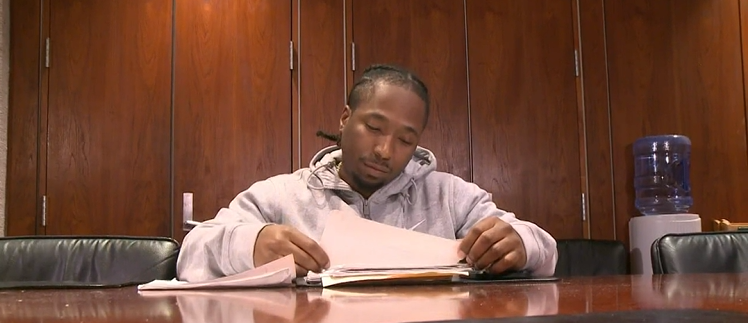System Against System
The prosecution's case against Keyontay Ricks is fraught with critical errors, inconsistencies, and misconduct that highlight the need for justice and his exoneration. Below, we outline the major flaws that have contributed to Keyontay's wrongful conviction.
Brady Violations
One of the most egregious issues in the prosecution of Keyontay Ricks was the failure to disclose exculpatory evidence, a violation of the Brady v. Maryland ruling. This landmark decision requires the prosecution to turn over all evidence that might exonerate the defendant.
- Undisclosed Police Report: The prosecution withheld a crucial police report by Detective Joanne Cino, which confirmed that $1,400—a significant portion of the alleged stolen money—was actually seized from M. Borina and Tina Smith's purses by police in which was their personal money and was never returned. This evidence directly contradicts the prosecution's claims and could have significantly impacted the jury's decision.
Inconsistent Testimonies
The prosecution's case relied heavily on the testimonies of law enforcement officers, which were plagued by inconsistencies and contradictions:
- Officer Thomas Brown's Testimony: Officer Brown's statements about the discovery and handling of the money were inconsistent. Initially, he claimed to have conducted a thorough search of Keyontay, finding the money on him. However, during hearings, he admitted to not searching areas where the money was supposedly found, and his narrative about the search process changed over time.
- Misleading Evidence Presentation: Brown testified at trial that he found a stack of money in Keyontay's shoe yet later admitted to "missing it" during the initial search. These discrepancies cast significant doubt on the reliability of his testimony and the integrity of the evidence presented.
Coercion and Recanted Statements
The prosecution's narrative was built on coerced statements and ignored recantations:
- Kurtel Walker's Coerced Statement: At the age of 15, Kurtel Walker was pressured by detectives to implicate Keyontay. He later recanted, stating his original statement was false and made under duress. Despite his attempts to correct his testimony, the prosecution proceeded without acknowledging these recantations.
- Pressure on Witnesses: Witnesses like M. Borina were reportedly pressured to change their stories to fit the prosecution's narrative. This manipulation undermines the credibility of the case against Keyontay.
Mischaracterization of the Incident
The prosecution failed to accurately represent the nature of the incident:
- Staged Robbery: Evidence and testimonies reveal that the alleged robbery was a prearranged scheme orchestrated by Kurtel Walker and Antwynias DeGraffenreid to settle a private debt. Keyontay had no knowledge or involvement in this arrangement, a fact corroborated by multiple affidavits.
- Failure to Call Key Witnesses: Despite knowing the true nature of the incident, the prosecution did not call key witnesses, such as Walker and DeGraffenreid, who could have testified to Keyontay's innocence and the non-existence of a robbery.
The prosecution's handling of Keyontay Ricks' case is a glaring example of justice gone awry. From withholding exculpatory evidence to relying on inconsistent and coerced testimonies, the flaws in the prosecution's case are too significant to ignore. These issues demand a thorough review of Keyontay's conviction and underscore the urgent need for his exoneration.
We urge you to join us in advocating for justice by supporting Keyontay's fight for freedom. Together, we can work to correct this miscarriage of justice and ensure accountability within the legal system.
